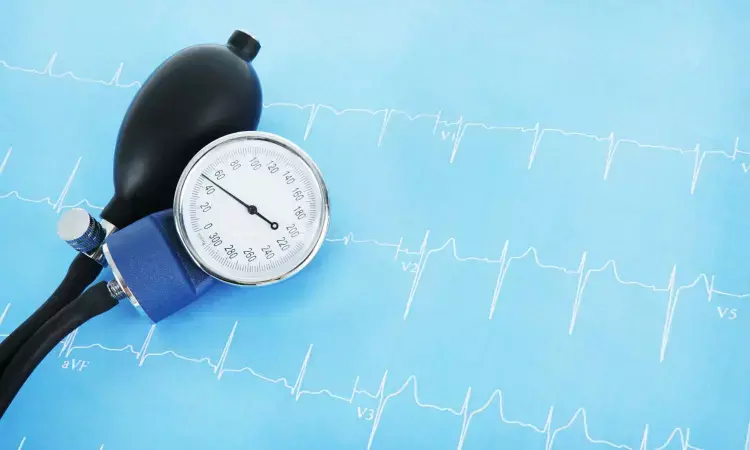- Home
- Medical news & Guidelines
- Anesthesiology
- Cardiology and CTVS
- Critical Care
- Dentistry
- Dermatology
- Diabetes and Endocrinology
- ENT
- Gastroenterology
- Medicine
- Nephrology
- Neurology
- Obstretics-Gynaecology
- Oncology
- Ophthalmology
- Orthopaedics
- Pediatrics-Neonatology
- Psychiatry
- Pulmonology
- Radiology
- Surgery
- Urology
- Laboratory Medicine
- Diet
- Nursing
- Paramedical
- Physiotherapy
- Health news
- Fact Check
- Bone Health Fact Check
- Brain Health Fact Check
- Cancer Related Fact Check
- Child Care Fact Check
- Dental and oral health fact check
- Diabetes and metabolic health fact check
- Diet and Nutrition Fact Check
- Eye and ENT Care Fact Check
- Fitness fact check
- Gut health fact check
- Heart health fact check
- Kidney health fact check
- Medical education fact check
- Men's health fact check
- Respiratory fact check
- Skin and hair care fact check
- Vaccine and Immunization fact check
- Women's health fact check
- AYUSH
- State News
- Andaman and Nicobar Islands
- Andhra Pradesh
- Arunachal Pradesh
- Assam
- Bihar
- Chandigarh
- Chattisgarh
- Dadra and Nagar Haveli
- Daman and Diu
- Delhi
- Goa
- Gujarat
- Haryana
- Himachal Pradesh
- Jammu & Kashmir
- Jharkhand
- Karnataka
- Kerala
- Ladakh
- Lakshadweep
- Madhya Pradesh
- Maharashtra
- Manipur
- Meghalaya
- Mizoram
- Nagaland
- Odisha
- Puducherry
- Punjab
- Rajasthan
- Sikkim
- Tamil Nadu
- Telangana
- Tripura
- Uttar Pradesh
- Uttrakhand
- West Bengal
- Medical Education
- Industry
Three days of home BP monitoring good enough for detecting hypertension

USA: A recent study has revealed that in most people, high home blood pressure (BP) can be excluded or identified with a high degree of confidence in just a few days.
Home blood pressure monitoring is crucial for confirming the diagnosis of hypertension, and this research aims to determine the optimal duration for monitoring.
The study published in Hypertension by Corey K. and colleagues provided valuable insights into home BP monitoring, suggesting that it may be possible to rule out or identify high BP with a high degree of confidence with 3 days or less of monitoring.
The study involved 361 adults who were not taking antihypertensive medication and were part of the Improving the Detection of Hypertension Study. The participants were monitored for their blood pressure over a 7-day period, with the goal of identifying upper and lower home blood pressure thresholds that could accurately diagnose high blood pressure based on shorter monitoring durations.
The findings were significant. Among the participants, 38.0% had high blood pressure during the reference period. The study revealed that:
● After just 1 day of monitoring, 63.7% of participants could be confidently identified as either having or not having high blood pressure (with over 90% predictive value).
● By the end of the second day of monitoring, this number increased to 17.1%.
● After 3 days, 10.5% of participants fell into the category of confidently identified high or normal blood pressure.
● The percentages continued to decrease for longer monitoring durations, with 3.3% after 4 days, 3.6% after 5 days, and 1.4% after 6 days.
These findings suggest that for most individuals, it may be possible to make a high-confidence determination about their blood pressure status with just 3 days or less of monitoring at home. This has important implications for improving the efficiency and convenience of diagnosing hypertension.
The ability to diagnose or exclude high blood pressure more quickly and confidently can lead to better patient management and timely interventions, ultimately reducing the risk of complications associated with hypertension. It may also encourage more people to monitor their blood pressure regularly, improving overall cardiovascular health.
In summary, this study highlights the potential for streamlining the home blood pressure monitoring process, making it more accessible and convenient for individuals while maintaining diagnostic accuracy. This research contributes to the ongoing efforts to enhance the detection and management of hypertension, a critical factor in preventing cardiovascular diseases.
Reference:
Bradley, C. K., Choi, E., Abdalla, M., Mizuno, H., Lam, M., Cepeda, M., Sangapalaarachchi, D., Liu, J., Muntner, P., Kario, K., Viera, A. J., Schwartz, J. E., & Shimbo, D. (2023). Use of different blood pressure thresholds to reduce the number of home blood pressure monitoring days needed for detecting hypertension. Hypertension. https://doi.org/10.1161/hypertensionaha.123.21118
Dr Kamal Kant Kohli-MBBS, DTCD- a chest specialist with more than 30 years of practice and a flair for writing clinical articles, Dr Kamal Kant Kohli joined Medical Dialogues as a Chief Editor of Medical News. Besides writing articles, as an editor, he proofreads and verifies all the medical content published on Medical Dialogues including those coming from journals, studies,medical conferences,guidelines etc. Email: drkohli@medicaldialogues.in. Contact no. 011-43720751


